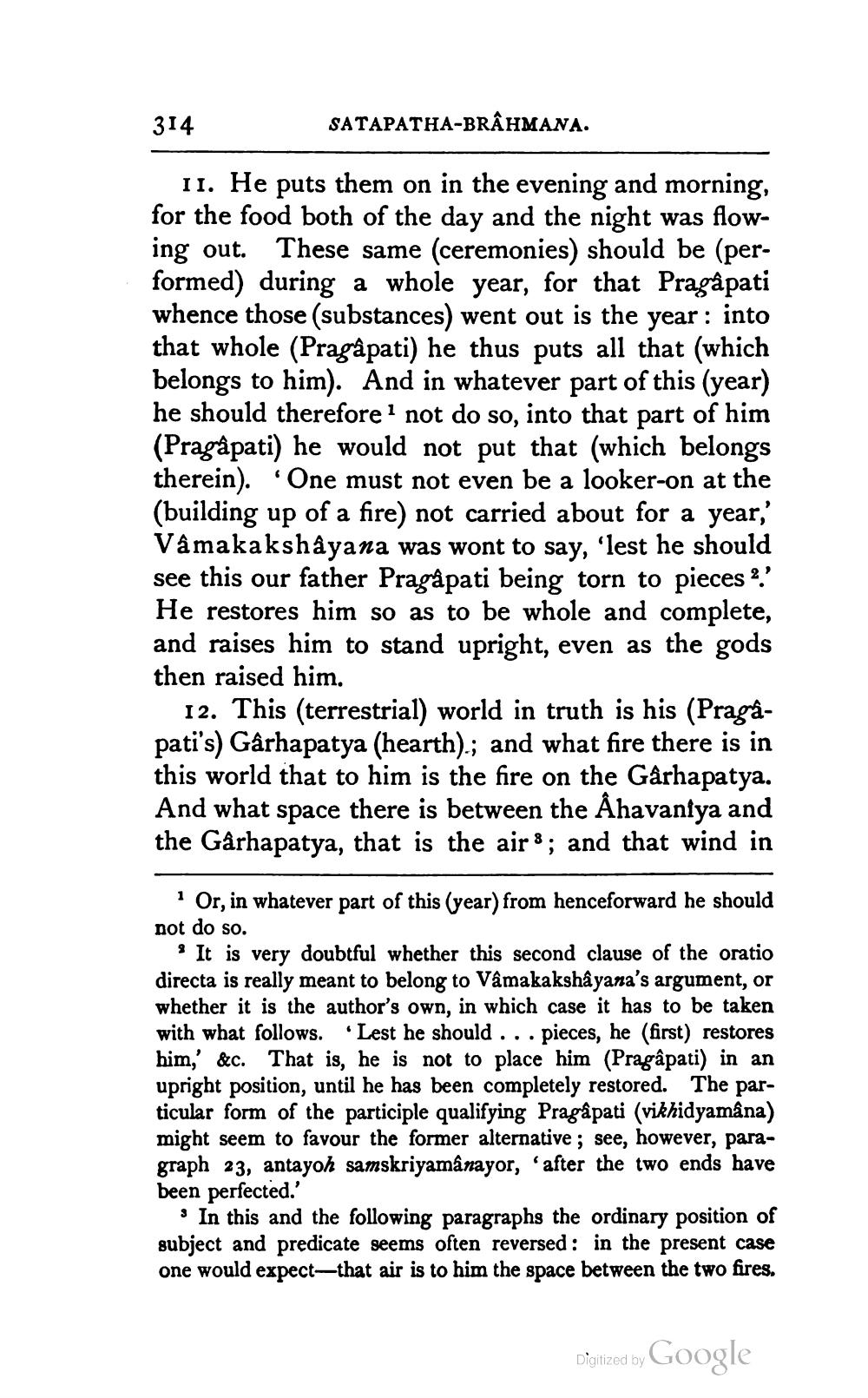________________
314
SATAPATHA-BRAHMANA.
11. He puts them on in the evening and morning, for the food both of the day and the night was flowing out. These same (ceremonies) should be (performed) during a whole year, for that Pragâ pati whence those (substances) went out is the year: into that whole (Pragàpati) he thus puts all that (which belongs to him). And in whatever part of this (year) he should therefore not do so, into that part of him (Pragâpati) he would not put that (which belongs therein). 'One must not even be a looker-on at the (building up of a fire) not carried about for a year,' Vâmakakshayana was wont to say, 'lest he should see this our father Pragåpati being torn to pieces ?.' He restores him so as to be whole and complete, and raises him to stand upright, even as the gods then raised him.
12. This (terrestrial) world in truth is his (Pragapati's) Gârhapatya (hearth); and what fire there is in this world that to him is the fire on the Garhapatya. And what space there is between the Åhavaniya and the Gârhapatya, that is the air 3; and that wind in
Or, in whatever part of this (year) from henceforward he should not do so.
* It is very doubtful whether this second clause of the oratio directa is really meant to belong to Vâmakakshầyana's argument, or whether it is the author's own, in which case it has to be taken with what follows. Lest he should ... pieces, he (first) restores him,' &c. That is, he is not to place him (Pragâpati) in an upright position, until he has been completely restored. The particular form of the participle qualifying Pragâpati (vikhidyamâna) might seem to favour the former alternative; see, however, paragraph 23, antayoh samskriyamânayor, after the two ends have been perfected.'
. In this and the following paragraphs the ordinary position of subject and predicate seems often reversed: in the present case one would expect—that air is to him the space between the two fires.
Digitized by Google




